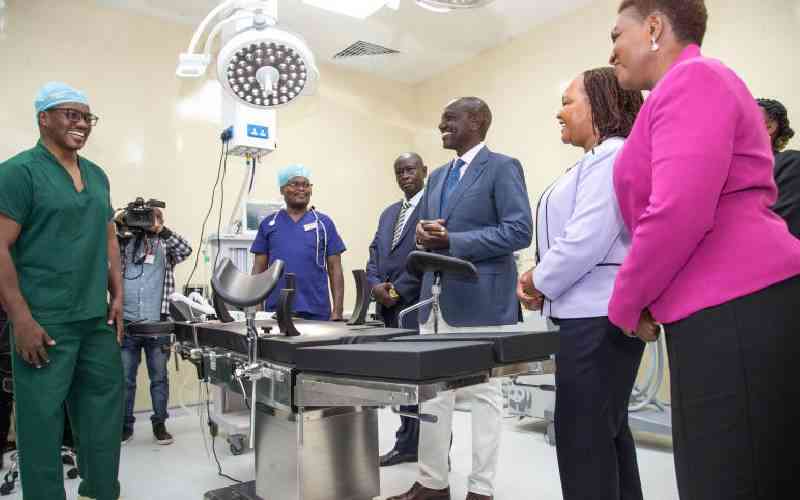×
The Standard e-Paper
Smart Minds Choose Us

Esther Wambui had a faint smile as she clapped her hands slowly while standing at the gate of Kerugoya Level 4 Hospital where she had come to see the doctor.
About 50 metres from where she and many others stood, President William Ruto was cutting the ribbon to officially open the new 341-bed Kerugoya County Referral Hospital.